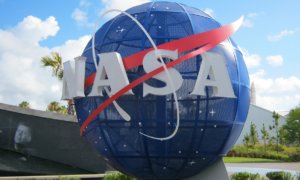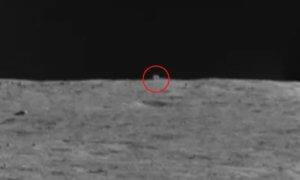[adrotate group=“15”]
News of an agreement between Russia and China was first announced by the Roscosmos State Corporation for Space Activities, a Russian state corporation responsible for space flights, cosmonautics programs, and aerospace research. The memorandum of understanding was signed by the heads of the Chinese and Russian space agencies on Tuesday and concerns a joint project on the creation of an “International Lunar Science Station.”
The principles of international parity
According to the Roscosmos website, the Roscosmos State Corporation, and the China National Space Administration, led by Dmitry Rogozin and Zhang Kejia respectively, “will promote cooperation in the creation of International Lunar Science Station for all interested countries and international partners” while taking into account “the principles of parity distribution of rights and obligations” as the two agencies are “aiming to strengthen research cooperation and promote the exploration and use of outer space for peaceful purposes for the interests of all mankind.”
“This will be the largest international space cooperation project for China, so it’s significant,” Chen Lan, an analyst who specializes in China’s space program, told APF news agency.
The article doesn’t offer many details regarding the project and there is no hint of a timeline of any kind, however, it does mention that Russia and China will collaborate in the planning, design, development, implementation, and operation of the research station, as well as its presentation to the international space community.
“This MoU fits the larger trend, which is Russia moving into a closer orbit with China,” Bleddyn Bowen, a lecturer in international relations at the University of Leicester, told SpaceNews in February.
This is not the first cooperation agreement signed between China and Russia that involves space exploration. The two nations have previously signed an agreement on cooperative lunar and deep space exploration. This was taking place in November 2017 with the agreement covering lunar and deep space, joint spacecraft development, space electronics, Earth remote sensing data, and also space debris monitoring.
NASA’s Artemis Accords
Whether or not it is because of the current uncertainty over US foreign policy, the truth remains that both China and Russia have made a visible move to distance themselves from “The Land of the Free.” For starters, the two nations are not yet partners in the Artemis Accords which consist of an international agreement between several governments on the peaceful exploration of the Moon, Mars, comets, and asteroids.
The Accords were signed in October 2020 by the directors of eight national space agencies: United States, Australia, Canada, Japan, Luxembourg, Italy, the United Kingdom, and the United Arab Emirates, with Ukraine and Brazil joining later that year.
Russia, while NASA’s largest partner on the International Space Station, has been excluded from the Artemis Accords, after Dmitry Rogozin criticized not just the Accords, but the entire Artemis mission, as being too political.
“For the United States, this is now more of a political project,” Rogozin told a Russian tabloid in July. “With the lunar project, we are observing the departure of our American partners from the principles of cooperation and mutual support that developed during cooperation on the ISS. They see their program not as international, but similar to NATO. There is America, everyone else must help and pay. To be honest, we are not interested in participating in such a project.”
The importance of a Russian and Chinese moon base
China also did not look favorably upon the agreements, with Chinese central state television stating that the Accords are a step toward the enclosure of outer space by the self-interested United States.
“The U.S. is developing a new space version of an ‘Enclosure Movement,’ in pursuit of colonization and claiming sovereignty over the moon,” Chinese military and aerospace commentator Song Zhongping told the Global Times.
“The U.S. advances its space agenda aggressively and sometimes unilaterally in recent years despite the concerns of the rest [of the] world, which made China and Russia very worried,” Zhang Ming, a researcher on international security and space issues at the Shanghai Academy of Social Sciences, told SpaceNews. “The mistrust and skepticism towards U.S. motives will promote China and Russia to further their space cooperation.”
Roscosmos’ International Lunar Science Station announcement comes as NASA’s progress on its Artemis plans to return astronauts to the Moon by 2024 further brought into relief China and Russia’s different difficulties in working with the U.S. in the past years.
Follow TechTheLead on Google News to get the news first.

























